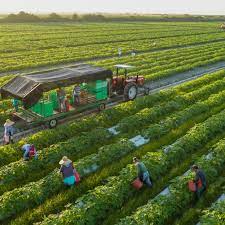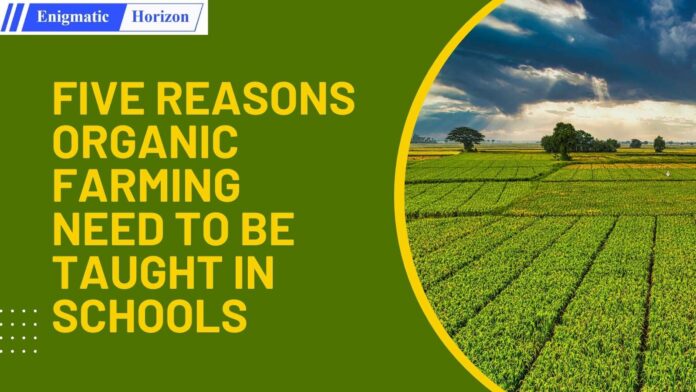Reetika Choudhury
Have you ever considered the impact of sustainable agriculture on our environment? Schools should teach children about the importance of organic farming and its benefits. Starting from a young age, they can learn why organic farming matters and how it helps our environment as well as society. Here are five reasons why classrooms should educate children about the significance of organic farming!
1. Food production
As we all know, a significant portion of our GDP is contributed by the agricultural sector. Therefore, it is essential to increase food production to boost our country’s GDP, and for this, involvement in agriculture is necessary. It is better if the food production we do is more organic. Nowadays, organic food products are in high demand in the market. People want to eat fresh and natural things without the use of chemical fertilizers to stay healthy and fit. So, to increase food production, we can teach children in school the concept of how necessary it is to learn organic farming.

2. Cultivating Future Farmers
Since more people are now demanding organic products, the supply of skilled labor is equally necessary. Schools can participate by collaborating with different local farmers to teach children organic farming, even taking them for fieldwork. They can have live experiences with the farmers, learning firsthand how organic farming is done, how the food we eat is grown, and how sustainable this farming method is. Some children might even develop an interest in it and choose it as a career. So, it is very important to teach children organic farming to meet the growing market demand for organic products.
3. Growing Awareness about Sustainable agriculture
As our population grows, it is natural that food production will also need to increase to meet the growing demand. Therefore, we must keep in mind that the food we produce should not harm our natural environment or any living creatures. Sustainable agriculture is essential in this regard, and organic farming is one way to maintain sustainability. Instead of using pesticides, insecticides and various chemical fertilizers we can use natural pesticides like cow dung and so on. We can include lessons in books that explain the advantages and disadvantages of these practices so that children understand and become aware of our environment.

4. Growing Life Skills
When the schools will take children on field trips to learn about organic farming, they will acquire skills they can apply in real life. For instance, if there are unexpected weather conditions or a pest attack, they will know the solutions to tackle these issues, which they will have been taught. This will enable them to solve real-life problems with confidence. Additionally, when they work in groups, they will learn teamwork, develop leadership skills and acquire various other skills that will help in their future personality development.
5. Responsible Education
Education not only means to focus just on academics. If students actively learn about organic farming from the childhood, they will grow up with a vision of sustainable and greener planet. Schools will be successful in creating better leaders, better engineers, better entrepreneurs who are far more intelligent and sensitive towards the exploitation of the earth. In this way, schools will also contribute in developing the underprivileged areas and this will further lead to better connectivity and development of our nation.
